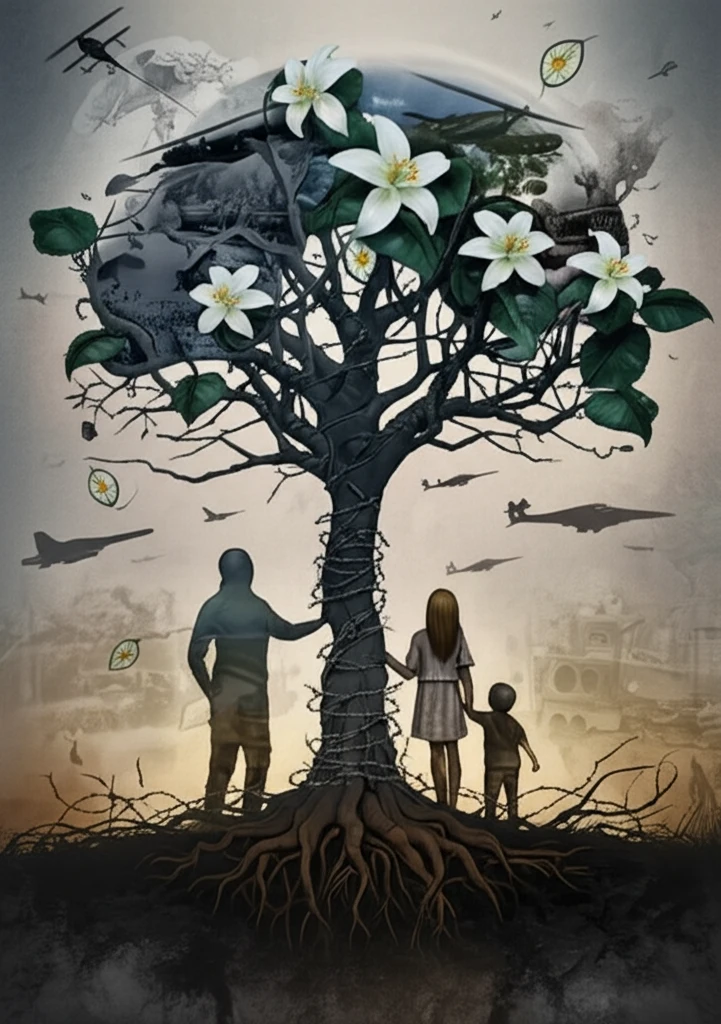
Unpacking the Past: How Understanding Historical Trauma Can Help Us Heal Today
"Delving into Uwe Timm's 'Am Beispiel meines Bruders' to explore how confronting difficult family histories can foster empathy and break cycles of suffering."
History isn't just a collection of dates and events; it's a living force that shapes our identities, families, and societies. The weight of past traumas, especially those linked to war, violence, and oppression, can reverberate through generations, leaving lasting scars that affect how we relate to ourselves and the world around us.
Representing Germany's experience in World War II remains a deeply cultural and political undertaking as well as an intensely controversial and conflicted, yet inevitable, even necessary endeavor. One need only consider the discussions surrounding the television media event Holocaust in the 1970s, the controversy of the Historians' Dispute of the 1980s, and the debates that followed the appearance of texts such as W. G. Sebald's Luftkrieg und Literatur and other publications that in the 1990s and turn of the century accentuated German suffering in the War. The massive number of publications that has appeared about these and related topics, one may wonder if, from the perspective of German history, as much has been written about how to write about the Second World War as has now been written about the war itself.
One powerful example of grappling with inherited trauma can be found in Uwe Timm's novel, Am Beispiel meines Bruders (On the Example of my Brother). This work delves into the author's family history, particularly his relationship with his older brother, who served in the SS during World War II. Through Timm's exploration, we can gain valuable insights into how families grapple with difficult pasts and how acknowledging historical trauma can pave the way for healing.
The Echoes of War: How Trauma Lingers Through Generations

The Second World War was not just a series of battles; it was a cataclysmic event that fundamentally challenged our desire for order and resolution because of the nature of its disconcerting inexplicability, its profound connection to the identities of Germans and Jews, and the vastness of the trauma it induced in participants and their descendents. As a symptom of this inexplicability Saul Friedlander emphasizes in his comments on Claude Lanzmann's Shoah project the spiraling character that the telling of personal traumatic events assumes
- Unresolved Narratives: Traumatic events often leave behind incomplete or fragmented stories, making it difficult for individuals to fully understand their family history.
- Emotional Inheritance: Even without explicit knowledge of past events, individuals can inherit feelings of grief, shame, guilt, or anger from previous generations.
- Identity Formation: Family secrets and unspoken traumas can significantly impact an individual's sense of self and their relationships with others.
Turning Pain into Progress: A Path Toward Collective Healing
Confronting historical trauma isn't easy. It requires courage, vulnerability, and a willingness to challenge long-held beliefs and assumptions. However, the rewards are immense. By acknowledging the pain of the past, we can break cycles of suffering, foster empathy, and build a more just and compassionate future for ourselves and generations to come. Timm's work, and others like it, provide a powerful example of the transformative potential of facing our shared history with honesty and openness.
